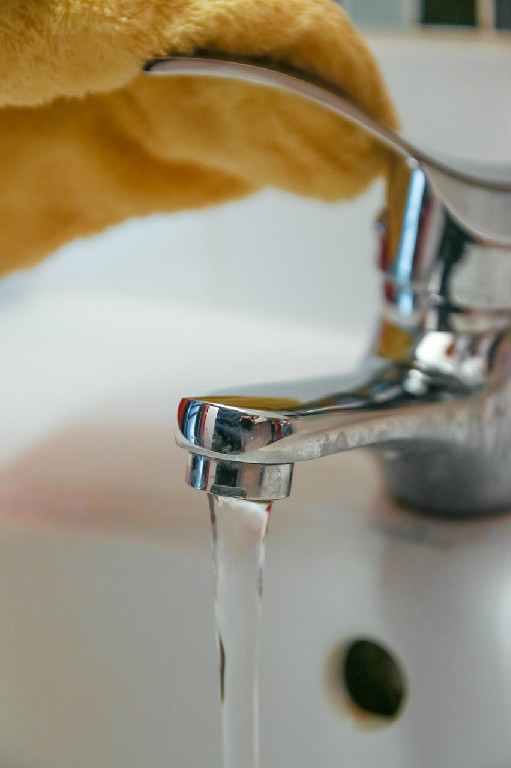Main Navigation
Our Water
Most of the water in the United States is hard water. What is hard water? Calcium and magnesium compounds, along with manganese make water hard. Hard water may shorten the life of plumbing and lessen the effectiveness of certain cleaning agents. When hard water is heated, the carbonates precipitate out of solution, forming scale in pipes and tea kettles. In addition to narrowing and potentially clogging the pipes, scale prevents efficient heat transfer, so a water heater with scale will have to use a lot of energy to give you hot water.
Soap is less effective in hard water because it reacts to form the calcium or magnesium salt of the organic acid of the soap. These salts are insoluble and form grayish soap scum, but no cleansing lather. Detergents, on the other hand, lather in both hard and soft water. Calcium and magnesium salts of the detergent's organic acids form, but these salts are soluble in water.
Hard water can be softened — have its minerals removed — by treating it with lime or by passing it over an ion exchange resin. The ion exchange resins are complex sodium salts. Water flows over the resin surface, dissolving the sodium. The calcium, magnesium, and other cations precipitate onto the resin surface. Sodium goes into the water, but the other cations stay with the resin. Very hard water will end up tasting saltier than water that had fewer dissolved minerals.
Cleaner, softer and water that is truly pure are the results of using the California Conservation system in your home. Taste, touch, and see the difference of clean water. Using cleaner and softer water will award you with sparkling clean bathrooms, cleaner and brighter laundry and softer, more luxurious baths, even for the most sensitive skin. In addition, money will be saved on plumbing maintenance and hot water energy bills. The benefits are endless.


